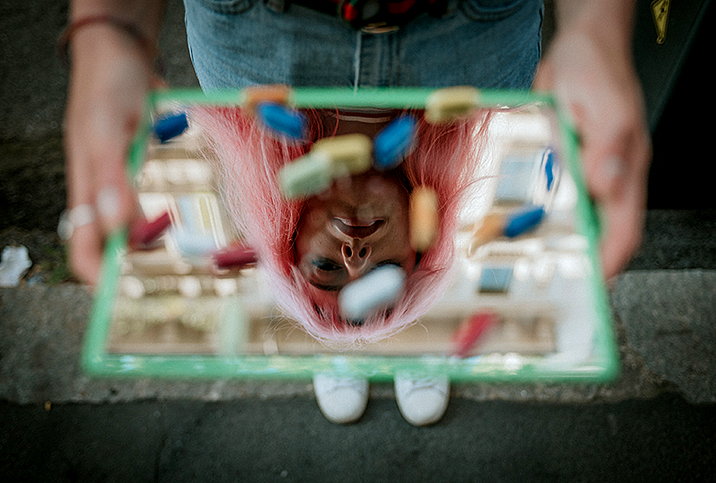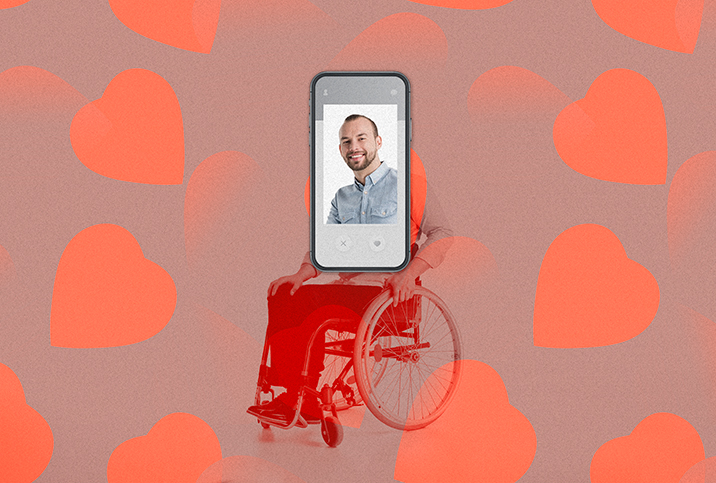How Does Overmedicalization Impact Disabled People?

Starting at age 7, I underwent frequent medical interventions that led to a twisted sense of bodily autonomy.
My sexual development dawned at the same time as dozens of specialists attempted to diagnose multiple chronic illnesses. This medicalization polluted my burgeoning sexuality.
Some medical intervention is necessary for chronically ill and disabled people, but overmedicalization looms over our sexual development, which is already hard to navigate in the shadow of desexualization, fetishization and infantilization.
In the United States, there are 133 million people living with long-term chronic illnesses, and 61 million adults living with a disability, meaning overmedicalization poses a threat to a significant portion of the population.
What is 'overmedicalization'?
"Medicalization" is defined as the process by which conditions and behaviors are identified and treated as medical problems. While this process is necessary in theory, it can be harmful to chronically ill and disabled people when they are treated as medical curiosities first and people second.
"Overmedicalization" is defined as a patient being subjected to medical practices with no apparent benefits.
"Disabled people are more vulnerable to the influence of overmedicalization because we depend so much on the medical system in order to get our basic needs met," said Kaley Roosen, Ph.D., a clinical health psychologist in Toronto.
Over time, overmedicalization has potentially devastating effects, Roosen explained.
"Disabled and chronically ill people are also repeatedly told by medical professionals that their bodies and minds are problems and wrong," she said. "There is a message that they can only live a fulfilling life by trying to be less disabled. It leads to feelings of being wrong and broken. It also leads to a dependency on the system, both to access basic needs and to feel like you're fulfilling some social obligation to get better."
How does it present?
My first experience of overmedicalization occurred at age 8 when I was subjected to a hymen check during a consultant's appointment. The doctor did not give any warning or explanation, so I froze in place and acquiesced. It took more than a decade to recognize the impact of this moment.
As my illnesses progressed and the hospital took on a permanent role in my life, I underwent endless invasive tests—some needed and others unnecessary.
I began to see myself the same way doctors and nurses treated me, as a medical object with a set of symptoms to fix.
"After many years of being treated like a set of symptoms, disabled and chronically ill people begin to also associate their body with the medical problems they have been assigned, particularly for those who have been in the system from a young age," Roosen explained. "Their body may become a source of shame as it is always represented as being a problem."
The effect was exacerbated by my doctors' tendency to discuss my body and symptoms as if I were not present.
When diagnosing my first chronic illness—an autoimmune disease called localized scleroderma—I became a curiosity because the hospital had never seen a case like mine before. Subjected at age 14 to intense examinations while naked in rooms packed with student doctors, my identity got lost amid the medicalization.
Impact on sexual development
Overmedicalization's effects are exaggerated by a lack of inclusive sex education. Comprehensive sex education is already a rarity, with the United States having no standardized approach, but disabled people, in particular, are often excluded entirely.
"I've never even heard about there being a mention of disabled sex during the sex ed students may receive in school," said Rachael Rose, a sex and relationship coach and an educator in Philadelphia. "There are also few examples of what disabled sex can look like in the media, and since many doctors are uncomfortable having conversations about sex with their patients, it doesn't leave many places for disabled folks to even learn about how to make sex work for their bodies."
Without guidance on setting boundaries or asserting our needs, disabled and chronically ill people are extremely vulnerable to having their sexual development warped when subjected to overmedicalization.
Medical interventions can also trigger feelings of bodily shame, making it hard to see ourselves as sexual beings or to connect with pleasure.
"This can lead to many different types of struggles later in life, such as difficulties asserting boundaries and concerns, avoidance of sex, fear of sex, disconnection from their own sense of pleasure and emotional needs, and overall disruption of their sexual identity," Roosen said.
As a result, we are especially vulnerable to developing "good patient" syndrome, which refers to when a patient tries to be amenable at all times to secure quality healthcare. The theory of this syndrome suggests medical professionals treat patients who do not resist or ask too many questions better than those who do.
This syndrome can bleed into our sex lives.
Sammy Lincroft is a former computer scientist turned full-time patient and chronic illness advocate in Australia. He has severe myalgic encephalomyelitis (ME) and Behçet's disease, and has also felt the impact of the syndrome.
"Good patient syndrome has strongly affected me and my ability to communicate clearly with my medical team," they said. "In particular to sexuality, I have found that I am extremely uncomfortable disclosing my sexual activity to doctors in a way I never was previously. I am afraid that disclosing such activity will make doctors believe I do not take my health seriously."
Remedying the effects
Reckoning with the influence of overmedicalization means updating consent practices and redefining our relationship with sexual pleasure.
Learning to become your own protector is crucial because only you understand your precise needs, as Rose explained.
"It's not always easy to be a good advocate for yourself, but it's essential to getting the best kind of care for you," she said. "We deserve medical providers who treat us as whole people, and if you feel like your medical care is impeding your ability to enjoy yourself sexually, that's something you should bring up with your healthcare provider. You deserve to have care that works for you."
Once you feel empowered to assert your needs and boundaries, the next step is healing the trauma that has already taken root. Expelling overmedicalization's influence from your life is not an overnight process.
"First and foremost, it must be acknowledged that what happened to that individual was medical trauma and that trauma has as strong an impact on sexual development and self-esteem as experiencing early childhood sexual trauma," Roosen advised. "Just because it occurred in a medical system and was deemed normal practice does not negate the negative impact it has had on a person's self and development.
"Healing from trauma takes time, support and self-compassion," she continued. "I would encourage anyone recovering from medical trauma and overmedicalization to spend some time exploring their sexuality on their own and getting connected to their body and its sensations in a nonjudgmental way."
Changes must also be made in the medical community to accommodate the needs of people who grow up chronically ill and/or disabled to ensure that they develop a strong understanding of their right to partake in medical decisions.
Doctors must take responsibility for their role in interrupting healthy sexual development by building clear communication practices with patients.
"Consent needs to be a better, bigger part of medical checkups," Roosen said. "That means talking to your patient throughout any exams, explaining in detail what you are going to be doing and why, and asking every time you're going to do something in an exam prior to doing it, especially if it involves physical touch."
Unraveling desexualization
Sexuality is a beautiful thing, and disabled and chronically ill people deserve to explore freely without the weight of overmedicalization around every corner.
"As chronically ill and disabled people, we are constantly faced with unbalanced power dynamics, physical limitations, pain and infantilization," Lincroft said. "My best advice to someone struggling with overmedicalization impacting their sexuality would be rather than trying to keep your disability out of your sex life, invite it in on your own terms. Your disability is a part of who you are, and to have the best possible sexual experiences, you need to be able to be your whole authentic self."


















